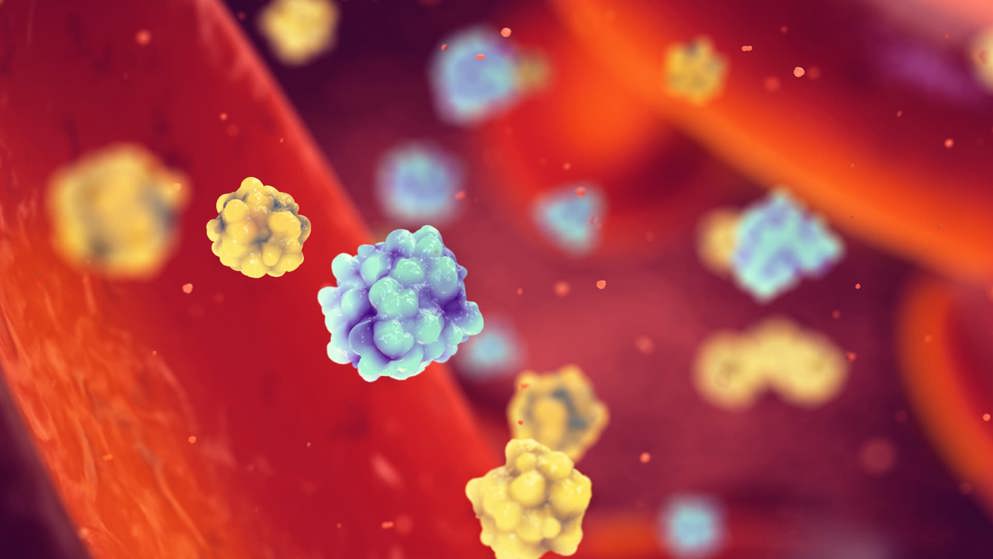
New study published in The New England Journal of Medicine demonstrates FreeStyle Libre 2 System has positive impacts on glucose levels and quality of life
A new study published in The New England Journal of Medicine finds that for adults with Type 1 diabetes and sub-optimal glycemic control, Abbott's FreeStyle Libre 2 glucose monitoring system provided significant reductions in glycated hemoglobin (HbA1c) compared to self-monitoring of blood glucose (SMBG), which were sustained for the study duration of 24 weeks
Use of the FreeStyle Libre 2 system was also linked to improvements in participant-reported quality of life outcomes, including overall satisfaction and reduction in burden associated with glucose monitoring.
After six months, people who used the FreeStyle Libre 2 system reduced their HbA1c levels by an average of 0.8% (8.7% to 7.9%). Lowering HbA1c by this amount can decrease the risk of developing diabetes complication in the future. In comparison, people using SMBG reduced their HbA1c levels by an average of only 0.2% (8.5% to 8.3%). HbA1c provides an estimate of average glucose levels over the preceding three months and is the standard measurement of glycemic control for people with diabetes. Increased HbA1c is associated with a greater risk of developing complications related to diabetes, such as cardiovascular disease, kidney disease and eye problems.
"Continuous glucose monitoring has been a critical tool for people living with diabetes, both to avoid painful fingersticks and to help manage glucose levels," said study author Dr. Lalantha Leelarathna from the University of Manchester NHS Foundation Trust. "This data adds to the growing body of evidence that demonstrates the technology helps bring HbA1c levels closer to the target range, which ultimately decreases risks of further complications."
The trial included 156 people aged 16 years or older with Type 1 diabetes and HbA1c levels of 7.5% to 11%, none of whom had previously used continuous glucose sensing technology. For 24 weeks, half the participants were randomized to monitor their glucose with the FreeStyle Libre 2 system and the other half with SMBG.
The average HbA1c level of participants using the FreeStyle Libre 2 system was 0.3% lower at 12 weeks and 0.5% lower at 24 weeks, statistically significant compared to those using SMBG. FreeStyle Libre users also had a greater likelihood of reducing their HbA1c by a full percentage point by the end of the study period. They spent an additional 130 minutes per day with glucose levels in the target range (70-180 mg/dL) and 43 minutes per day less time with dangerously low glucose levels (<70 mg dl). freestyle libre 2 users also reported a positive impact on quality of life, captured by participant-reported answers to the diabetes treatment satisfaction questionnaire and the glucose monitoring satisfaction survey. at 24 weeks, these participants reported greater overall treatment satisfaction and reduced burden associated with glucose monitoring.
The study is part of FLASH-UK, the first randomized clinical trial of the FreeStyle Libre 2 system compared to SMBG. It was led by a team at The University of Manchester together with investigators from eight centers in the United Kingdom (Birmingham, Cambridge, Derby, Dorset, Ipswich, Manchester, Norwich and Portsmouth) and funded by Diabetes UK. Abbott was not involved in the execution or funding of the study.
Abbott's FreeStyle Libre systems include a sensor, which is applied to the back of the upper arm for up to 14 days and continuously measures glucose, paired with a compatible smartphone app4 or reader that display glucose readings. The FreeStyle Libre portfolio is the number one sensor-based glucose monitoring system in the world, having changed the lives of more than 4 million people across more than 60 countries6 by providing breakthrough technology that is accessible and affordable.
See-"Intermittently Scanned Continuous Glucose Monitoring for Type 1 Diabetes": Lalantha Leelarathna, Ph.D., Mark L. Evans, M.D., Sankalpa Neupane, Ph.D., Gerry Rayman, M.D., Sarah Lumley, M.R.C.G.P., et al., for the FLASH-UK Trial Study Group.-October 5, 2022 DOI: 10.1056/NEJMoa2205650.

